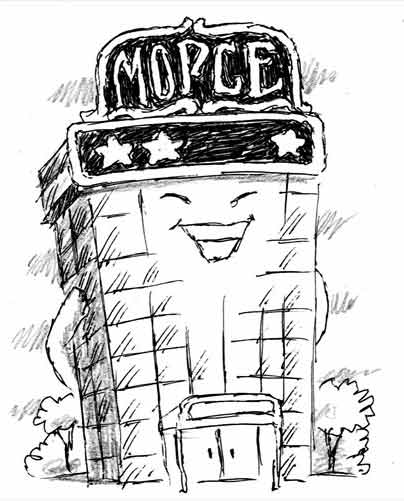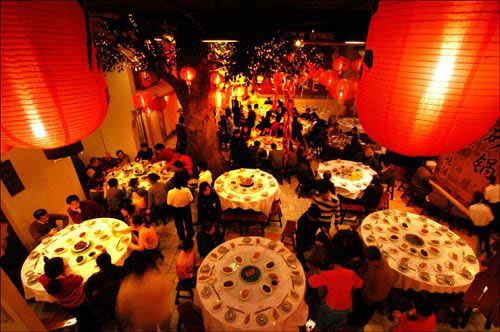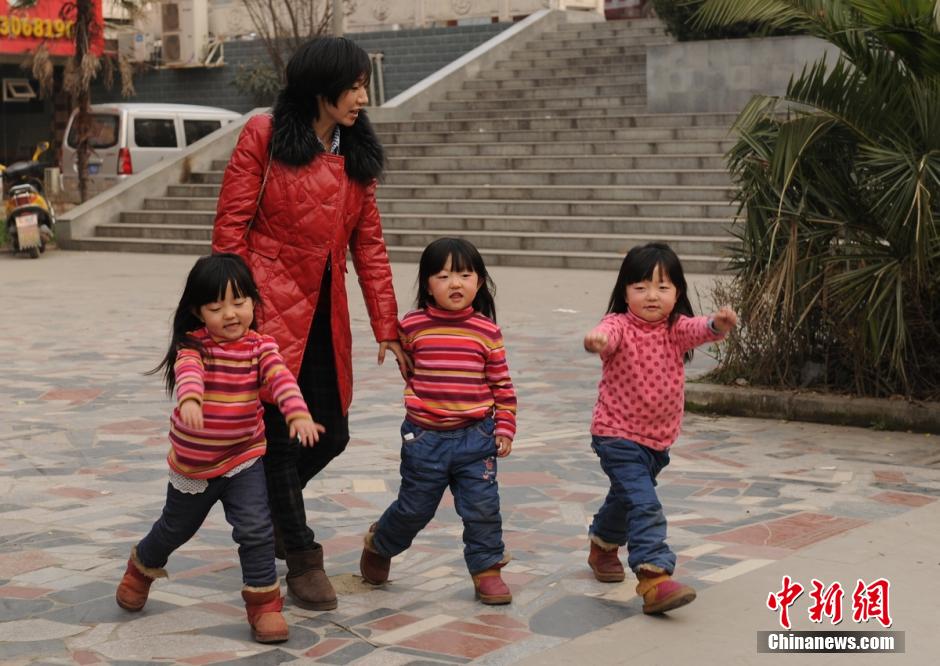 Cockfighting show staged in E. China's Heze during Spring Festival
Cockfighting show staged in E. China's Heze during Spring Festival
 Chinese New Year Flower Fair opens in San Francisco
Chinese New Year Flower Fair opens in San Francisco
 Festivities in Shanghai
Festivities in Shanghai
 PLA navy conducts drill in North China Sea
PLA navy conducts drill in North China Sea
 World's high-tech hotels
World's high-tech hotels
 Li Na poses with trophy on Brighton Beach in Melbourne
Li Na poses with trophy on Brighton Beach in Melbourne
 Six Chinese divers back safely after 300-meter saturation dive
Six Chinese divers back safely after 300-meter saturation dive
 Traditional wedding ceremony of Yao people
Traditional wedding ceremony of Yao people
 Taipei Game Show attracts geeky gamers
Taipei Game Show attracts geeky gamers
 |
| Illustration: Peter C. Espina/GT |
My mom works in a hotel. Her job is not that busy as far as I understand, but she did experience a very busy period two years ago when her hotel was applying for a four-star rating, a one-star increase. "If the hotel is upgraded to four stars, it will attract more businessmen as well as more officials," my mom told me at the time.
Her hotel eventually succeeded in obtaining the higher rating and has earned better revenues ever since. But I bet it doesn't want to apply for higher ratings in the years to come, because currently, swanky hotels in China are looking for ways to downgrade their rankings.
The loss of prestige of the five-star rating, which used to be considered a crown guaranteeing profits for hotels, comes as the CPC began enforcing a spending limit on officials' travel accommodation and other lavish activities at the public expense. Most five-star hotels have been put out-of-bounds, and lavish banquets held at these hotels are also banned.
One may get a sense of how dependent the hotel sector is on the extravagant habits of officials. According to a report released by the China Tourist Hotel Association, in the first half of 2013, the average lodging rate of hotels with three-star ratings or higher dwindled by 6 percentage points from the same period in 2012.
It is estimated that the hotel industry will report a decline of 25 percent in its overall business turnover in 2013. Almost one-third of these hotels hold extremely negative views toward the prospects of the hospitality industry in the next two years.
It is an encouraging sign that authorities are determined to crack down on corruption through various austerity plans.
Yet hotels have to struggle to survive, and downgrading their star rating seems a plausible option. The old Chinese saying, "Higher authorities have policies, while common folks have countermeasures," can be viewed as sarcasm, showing the disappointment of ordinary people toward malpractices in society, while it can also be taken as complacency from some local officials for bending the rules.
Therefore, that high-end hotels ask for downgrading is not necessarily to lower the consumption in hotels but to open a convenient door for consumption at public expense amid the authorities' extravagance ban, which equates to a breeding ground for corruption.
Since early 2013, the central authorities also began to crack down on gift giving to avoid these being used in an attempt to curry favor. But reports by Xinhua News Agency revealed that something called a "gift brochure" has become popular on the Internet.
The recipients get a brochure with password to a gift website and choose the goods they want. Of course the goods have already been paid for and will reach the recipients through express delivery.
When the undercover reporter pretended to be a buyer and said his gifts were to offer to a State institution, the salesperson of the gift website promised to keep the institution a secret.
We hope the hospitality industry can restore normal and healthy development. This industry should be put into the context of the market. The stars should be decided by a hotel's price, service and experience, not through any connection to corruption.
After all, what the brass nameplates behind the marbled front desks convey should not be a connection between officials and the hotel industry.
The author is a reporter with the Global Times.
 Special Coverage: Sochi Winter Olympic Games
Special Coverage: Sochi Winter Olympic Games  A day of a female high-speed train chief attendant
A day of a female high-speed train chief attendant New Year greetings from Chinese nationals in Africa
New Year greetings from Chinese nationals in Africa PLA navy conducts landing drills in South China Sea
PLA navy conducts landing drills in South China Sea  Blind date fair in Hangzhou
Blind date fair in Hangzhou  Highlights of Chinese New Year celebrations around the world
Highlights of Chinese New Year celebrations around the world  How do the Chinese spend their money during Spring Festival?
How do the Chinese spend their money during Spring Festival? 'Milk Tea' girl hosts Spring Festival gala of universities in U.S.
'Milk Tea' girl hosts Spring Festival gala of universities in U.S.  Brave mother fights cancer, enjoys Spring Festival with her triplets
Brave mother fights cancer, enjoys Spring Festival with her triplets President Xi visits border troops ahead of Lunar New Year
President Xi visits border troops ahead of Lunar New Year What do Chinese pack in their luggage in Spring Festival Rush?
What do Chinese pack in their luggage in Spring Festival Rush? Blind date fair in Hangzhou of Zhejiang province
Blind date fair in Hangzhou of Zhejiang province Film 'Where Are We Going, Dad' premiered in Beijing
Film 'Where Are We Going, Dad' premiered in Beijing  Australian Open champion Li Na returns to hometown Wuhan
Australian Open champion Li Na returns to hometown Wuhan Twin sisters serve during Spring Festival travel rush for the first time
Twin sisters serve during Spring Festival travel rush for the first timeDay|Week|Month